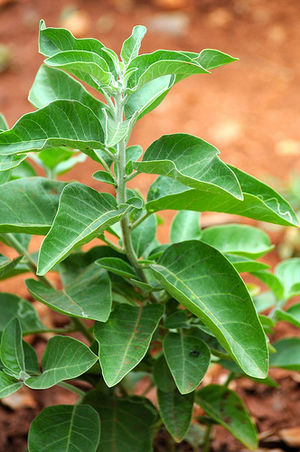Note: This is a project under development. The articles on this wiki are just being initiated and broadly incomplete. You can Help creating new pages.
Difference between revisions of "Withania somnifera - Ashwagandha"
| Line 1: | Line 1: | ||
| − | [[File:ashwagandha.jpg|thumb| | + | [[File:ashwagandha.jpg|thumb|right]] |
| − | |||
| Line 13: | Line 12: | ||
#It contains a various compounds which are collectively called as 'withanolides' which impedes the growth of cancer cells. | #It contains a various compounds which are collectively called as 'withanolides' which impedes the growth of cancer cells. | ||
#Due to its anti-oxidant features, it can also be used in anti-aging and scalp therapies. | #Due to its anti-oxidant features, it can also be used in anti-aging and scalp therapies. | ||
| + | |||
| + | [[Category:Herbs]] | ||
Revision as of 14:44, 12 October 2016
Ashwagandha is a herb which is being used in ayurvedic medicines since our ancient times. The scientific name of this herb is Withania somnifera. In Tridosha it plays a major role in the regulation of vata dosha which is one of the fundamental bioelement.
This fantabulous herb has a various health benefits, some of them are listed below:
- The root of this herb has an adaptogen quality, which strengthens our immune system and controls anxiety.
- This herb can be used in healing wounds and joint pains.
- Consuming this herb as a dietary supplement can help us in fighting with 'insomania' which is commonly called as 'sleeplessness'.
- It contains a various compounds which are collectively called as 'withanolides' which impedes the growth of cancer cells.
- Due to its anti-oxidant features, it can also be used in anti-aging and scalp therapies.
